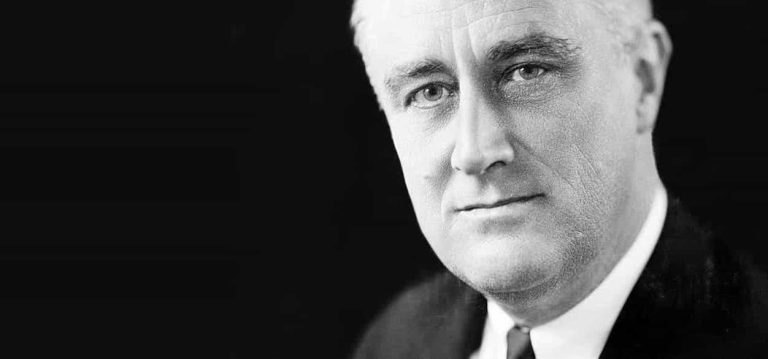
New York, N.Y. Reflecting on the leaders who have profoundly shaped the course of history, Franklin D. Roosevelt stands out as a paragon of visionary leadership and unwavering commitment to democracy. His tenure as the 32nd President of the United States is marked by transformative domestic policies and a significant impact on global affairs. FDR’s legacy as a thought leader and global citizen is a testament to his ability to navigate the nation through some of its darkest times with courage, innovation, and an unyielding commitment to the common good.
Born on January 30, 1882, in Hyde Park, New York, Franklin Delano Roosevelt came from a privileged background that afforded him a robust education and exposure to international affairs. He attended Harvard University and later Columbia Law School, where his interest in public service began to take shape. Despite the advantages of his upbringing, FDR demonstrated a profound empathy for the struggles of ordinary Americans, a quality that would define his political career.
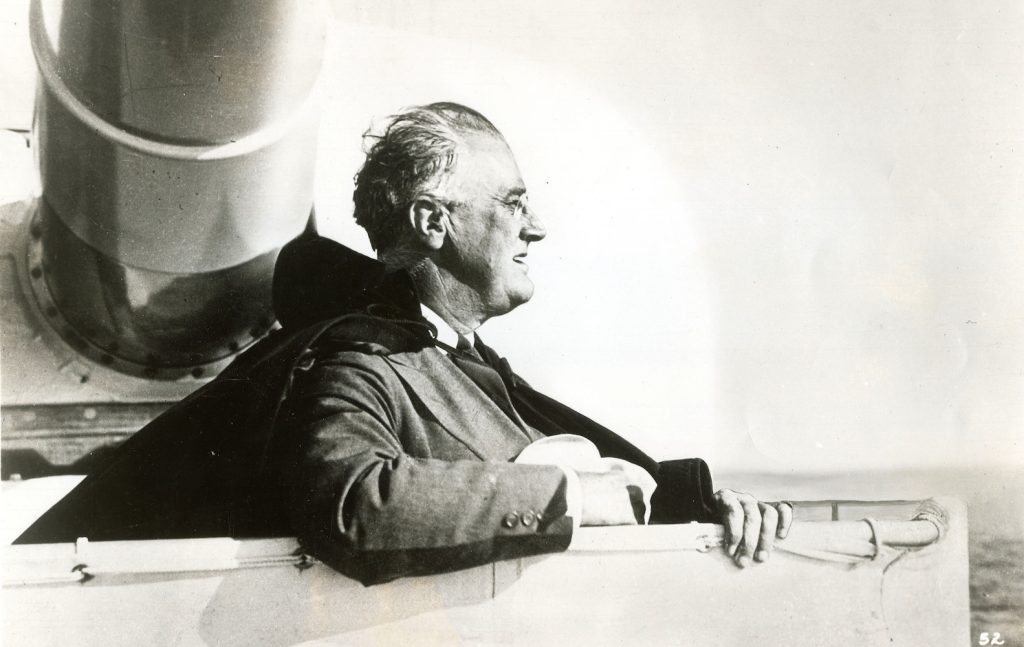
Roosevelt’s early political career began with his election to the New York State Senate in 1910. His commitment to progressive reform quickly became evident as he fought against corrupt political machines and championed policies to improve the lives of his constituents. His dedication to public service was further demonstrated during his tenure as Assistant Secretary of the Navy under President Woodrow Wilson, where he played a key role in modernizing the U.S. Navy during World War I.
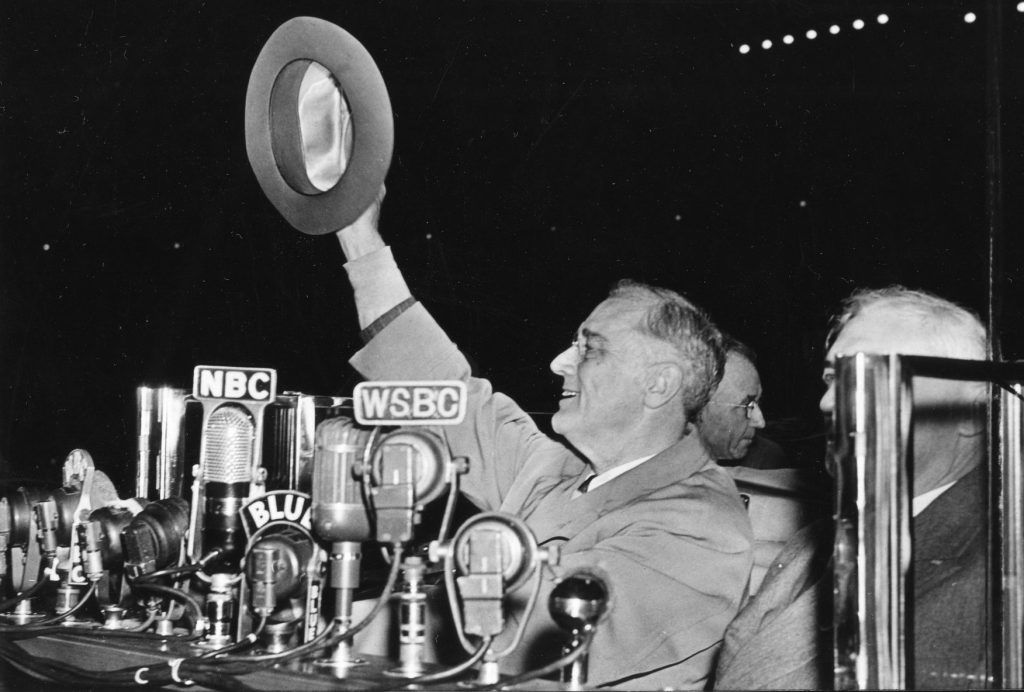
In 1921, at the age of 39, Roosevelt was stricken with polio, which left him paralyzed from the waist down. Despite this life-altering challenge, FDR’s resilience and determination only grew stronger. He refused to be defined by his disability and instead used it to fuel his empathy and understanding for those facing adversity. This personal struggle forged a deeper connection between him and the American people, who admired his courage and perseverance.

FDR’s ascent to the presidency in 1932 came at a time when the United States was reeling from the Great Depression. The nation faced unprecedented economic hardship, with widespread unemployment, failing banks, and pervasive poverty. Roosevelt’s response to this crisis was nothing short of revolutionary. His New Deal, a series of bold and innovative programs and policies, sought to provide immediate relief, foster economic recovery, and implement structural reforms to prevent future depressions.
The New Deal’s impact on American society cannot be overstated.
Programs like the Civilian Conservation Corps (CCC), the Public Works Administration (PWA), and the Social Security Act transformed the lives of millions of Americans by creating jobs, improving infrastructure, and establishing a safety net for the elderly and vulnerable. Roosevelt’s vision extended beyond mere economic recovery; he sought to build a more just and equitable society where every citizen had the opportunity to thrive.
Roosevelt’s leadership during World War II further solidified his legacy as a global citizen and thought leader. As the threat of fascism and totalitarianism loomed, FDR recognized the necessity of U.S. involvement in the global struggle for democracy. His administration provided crucial support to Allied powers through initiatives like Lend-Lease, which supplied vital resources to nations fighting against Axis aggression.
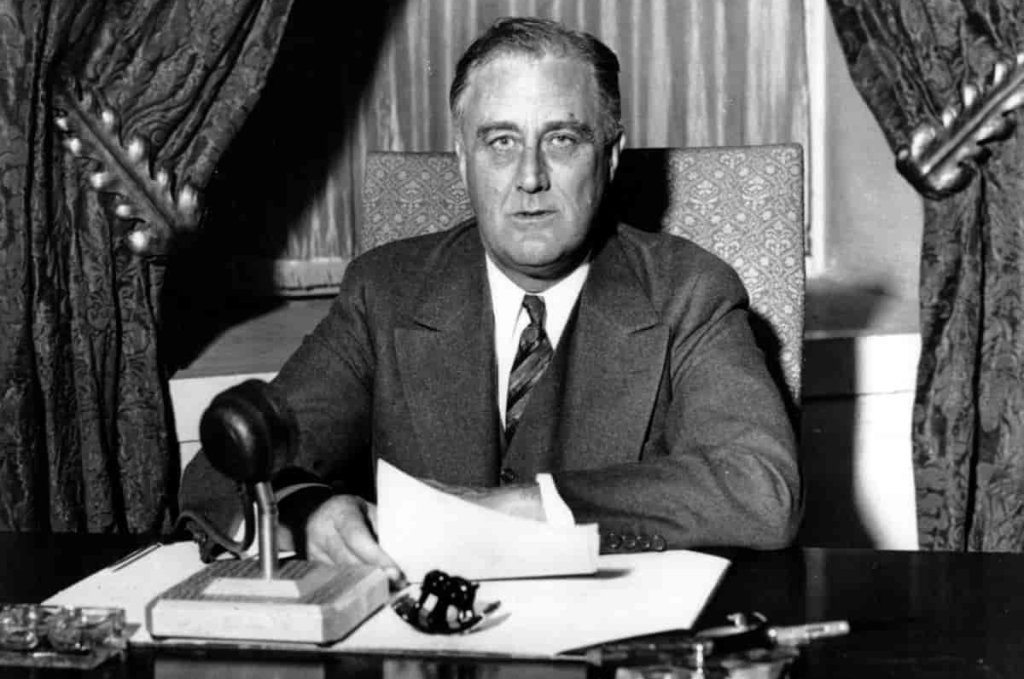
FDR’s ability to unite the American people and galvanize support for the war effort was unparalleled.
His famous “fireside chats,” a series of radio broadcasts, brought him into the homes of millions of Americans, fostering a sense of unity and shared purpose. Roosevelt’s eloquence and ability to communicate complex issues in relatable terms endeared him to the public and reinforced their trust in his leadership.
Roosevelt’s vision extended beyond the immediate crisis of the war. He was a principal architect of the post-war international order, advocating for the creation of the United Nations to promote peace, security, and cooperation among nations. His belief in the importance of collective action and international collaboration laid the groundwork for a more interconnected and cooperative world.

One of the most enduring aspects of FDR’s legacy is his commitment to human rights and social justice. His “Four Freedoms” speech, delivered in 1941, articulated a vision for a world founded on four essential human rights: freedom of speech, freedom of worship, freedom from want, and freedom from fear. These principles became a cornerstone of the Allied war effort and later influenced the Universal Declaration of Human Rights.
Roosevelt’s leadership style was characterized by his ability to inspire hope and confidence in the face of adversity.
His optimism and belief in the American spirit were infectious, and he consistently sought to empower individuals and communities to contribute to the nation’s recovery and progress. FDR’s capacity to blend pragmatism with visionary thinking enabled him to implement lasting reforms that fundamentally transformed American society.
As I reflect on Franklin D. Roosevelt’s impact on the world, I am struck by his unwavering commitment to the principles of democracy, justice, and human dignity. His leadership during the Great Depression and World War II not only steered the United States through some of its most challenging periods but also set a precedent for future leaders to follow.
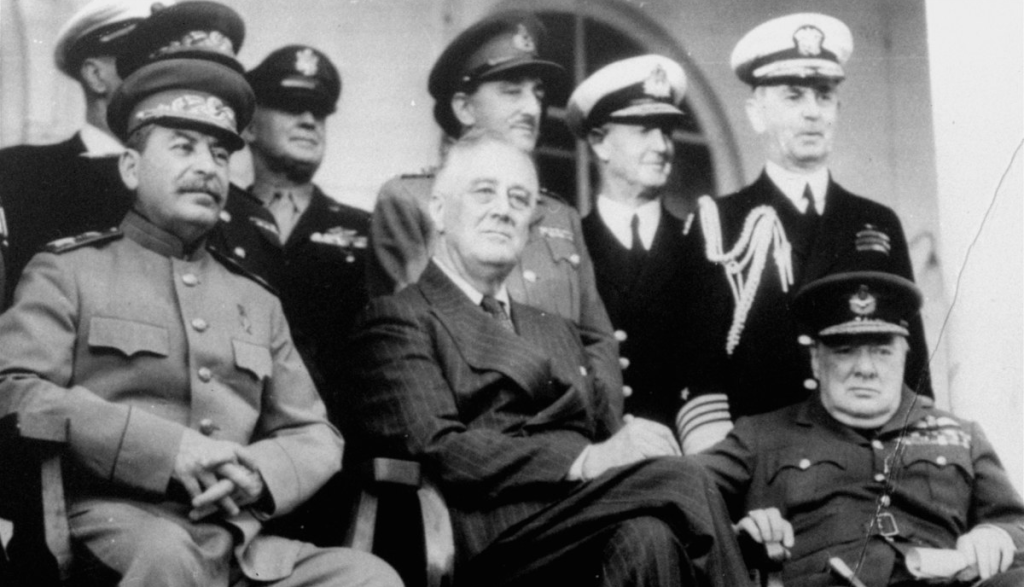
FDR’s legacy as a thought leader and global citizen serves as a powerful reminder of the importance of resilience, empathy, and visionary thinking in the pursuit of a better world.
Roosevelt’s life and career continue to inspire generations of leaders and citizens to engage in public service, advocate for social justice, and work towards a more inclusive and equitable society. His contributions to American politics and global affairs have left an indelible mark on history, demonstrating the profound impact that dedicated and principled leadership can have on the world.
In a time when the global community faces complex and multifaceted challenges, FDR’s example offers a beacon of hope and a blueprint for effective and compassionate leadership. His legacy reminds us that through determination, innovation, and a steadfast commitment to the common good, we can overcome adversity and build a brighter future for all.
Franklin D. Roosevelt: Architect of the New Deal and Global Visionary (July 3, 2020)
#FDR, #FranklinDRoosevelt, #NewDeal, #Leadership, #GlobalCitizen, #ThoughtLeader, #History
TAGS: FDR, Franklin D. Roosevelt, New Deal, Leadership, Global Citizen, U.S. President, Thought Leader, History